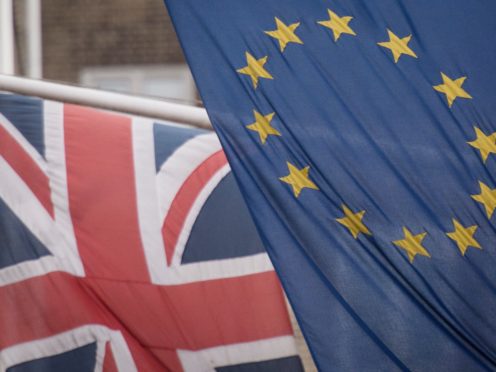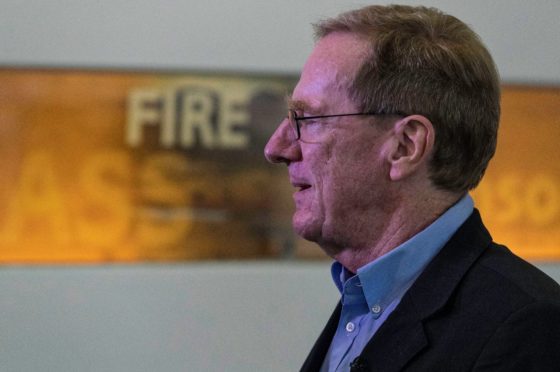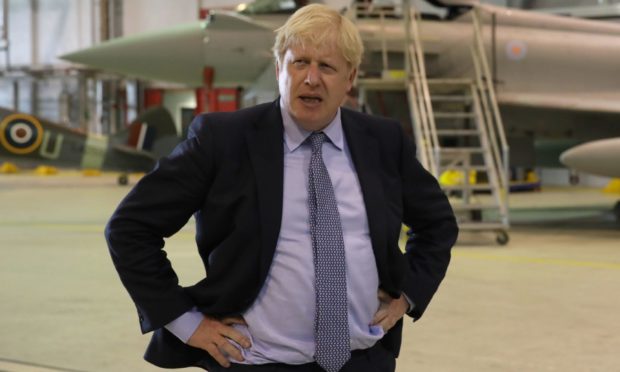A leading academic has described the Westminster government’s bid to override its previously agreed Brexit withdrawal deal as “very odd behaviour”.
Professor Michael Keating, chair in Scottish politics at Aberdeen University, said the Westminster administration appeared a “bit idiosyncratic” and that it was unclear who was making key decisions.
He was speaking after a fresh series of controversies engulfed the Brexit process on Monday, including reports that new legislation was being planned to change agreed customs arrangements for Northern Ireland.
On Wednesday, the Westminster government is due to publish its Internal Market Bill, which has already proved controversial in Scotland, amid claims it would undermine the powers of Holyrood.
Now the FT has reported that it could contradict the Northern Ireland Protocol, and “eliminate” the legal force of the withdrawal agreement in areas including state aid and customs.
Prof Keating said the move had surprised many and would jeopardise a trade deal with the EU.
“They are going back on the withdrawal agreement, that they had already agreed and legislated for, and put in an international treaty,” he said.
“It does seem very odd behaviour, if that is what is going to happen. As I say, we have to see the details of the Bill.
“But it is because they made a big stance on this level playing field, that is the big issue outstanding, whether the UK has to follow the EU rules or set its own rules.
“And we understood that Northern Ireland was going to work to both sets of rules. But if it is included in the internal market, then it is going to work towards UK rules.
“In fact, to be more precise a lot of things are going to be done according to the rules in England, because they will then be recognised in the other parts of the UK, and that undermines the idea of a separate deal for Northern Ireland.”
NEW: 🚨🚨🚨🇬🇧🇪🇺🚨🚨🚨UK planning legislation to override key parts of #brexit withdrawal treaty and Northern Ireland protocol – a potentially HUGE move in negotiations; major ructions in Whitehall – my latest via @FT
https://t.co/UU3VT2Yeta— Peter Foster (@pmdfoster) September 6, 2020
I trust the British government to implement the Withdrawal Agreement, an obligation under international law & prerequisite for any future partnership. Protocol on Ireland/Northern Ireland is essential to protect peace and stability on the island & integrity of the single market.
— Ursula von der Leyen (@vonderleyen) September 7, 2020
Prof Keating, who is director of the Centre on Constitutional Change at Edinburgh University, said the position change on state aid could be “highly problematic”.
“Now if they are including Northern Ireland in that state aid regime, that really is a big difference, because it means that Northern Ireland would be subject to the UK state aid regime, and not the European state aid regime,” he said.
“Which means effectively that Northern Ireland would be able to subsidise industry where the Republic of Ireland couldn’t, and give an unfair advantage to people in Northern Ireland.”
According to the expert, “nobody expected” the Northern Ireland protocol to be affected by the proposals.
“There is backtracking on the Northern Ireland protocol. Now the Northern Ireland protocol is not part of the deal that is being negotiated,” he said.
“It’s part of a deal that has already been concluded and put into legislation. That is a new development, if that is what it really amounts to, and we would have to see the Bill.
“That would make a trade deal extremely difficult if they insisted on reopening the Northern Ireland protocol.”
Asked about the way the government currently worked, the professor said: “It is a bit idiosyncratic. And we don’t really know who in government is making the policy.
“When, under the Theresa May government, these things were being fought over, we knew exactly who was on which side.
“There were some people who wanted to remain close to Europe and some people who didn’t.
“The Johnson government is supposed to be homogeneous, they are all Brexiters, but even so we are seeing these different interpretations of what Brexit means coming out of.”


